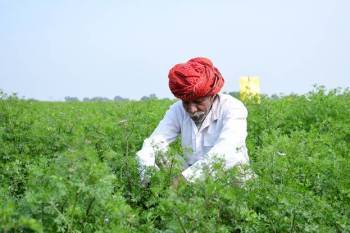NEW DELHI, 31 May 2024: Recently, established Indian spices brands MDH and Everest found themselves in the eye of an international storm as authorities in the US, Hong Kong, and Singapore raised red flags over the quality of their products. Both brands have vehemently denied any wrongdoing and have reassured consumers of their commitment to stringent health and safety standards, both domestically and internationally.
The controversy stems from a series of findings indicating discrepancies in the standards of these spices giants, prompting a closer examination of the Indian spices industry's practices at large. According to an article by NDTV, an extensive analysis of over 1.23 lakh food samples conducted between 2023 and 2024 revealed alarming results. Out of these samples, a staggering 24,794 failed to meet the required standards set by FSSAI. Among the samples scrutinized were 38,661 spice samples, the brands of which were undisclosed.
At the heart of this controversy lies the use of ethylene oxide, a chemical banned by European authorities due to its carcinogenic properties. Ethylene oxide is used as a fumigant in the sterilization process of various foods, including spices. Despite its ban in many regions, the US Environmental Protection Agency (EPA) has set tolerances for ethylene oxide residues in various food items, indicating its potential presence in imported products. For example, 7 ppm on herbs and spices, liquorice roots, dried peppermint tops, sesame seeds, dried spearmint tops, and dried vegetables.
The controversy underscores a broader issue within the spice industry - the need for stringent regulations and quality control measures. The lax oversight of farming practices, including the indiscriminate use of pesticides by farmers desperate for crop growth, poses a significant risk to consumer health. Additionally, the reliance on carcinogenic chemicals like ethylene oxide for spice sterilization further compounds these risks.
Given these advancements, one of our investee companies Azad Agro, sets a precedent for responsible and ethical practices in the spice trade, by directly sourcing agricultural produce from registered farmers and prioritizing education and empowerment at the grassroots level.
Azad Agro’s (AA) Holistic Approach – A Successful Case Study
Azad Agro, based out of Kota in Rajasthan, is a leader in supplying IPM coriander and cumin to various brands and B2B buyers. Its team of experts has complete control over the entire value chain of these spices with SOPs based on the following principles –
1. Development of an internationally acceptable package of practices (regularly updated).
2. Education of registered farmers on best practices in crop cultivation.
3. Complete handholding, training, and supervision of farmers during the entire cropping cycle, including testing for banned molecules.
4. Development of requisite infrastructure for procurement, logistics, processing & packaging, including steam sterilization, a more natural way of processing that aligns with international regulatory standards and ensures minimal distortion in taste as far as consumption is concerned.
5. Strong forward linkages, primarily catering to MNCs.
6. Appropriate use of technology in the entire chain (Source Trace App etc.)
The stickiness created by this model ensures that 5,000+ farmers (and the number is growing every year) don’t just supply to AA but are an intrinsic part of the AA family. AA not only ensures better incomes for member farmers but also promotes sustainable agriculture practices and ensures holistic development of their families through a range of education, healthcare, and sports with its partner, Roots Foundation.
The Way Ahead
It should not come as a surprise if the quality of ingredients (resulting end products) for most spices brands being sold in India is found wanting (read inferior) by regulatory authorities. A constant struggle to retain or increase margins in a very price-sensitive market is a major reason for this phenomenon. Many spice brands are mere marketing agencies that have made hardly any investment in forging quality backward linkages and quality processing infrastructure.
As the next step, the food regulator must test the products of all major brands selling in India and come out with the results in public. At another level, the food regulator must also benchmark the parameters it has laid down for Indian brands against those set by their counterparts in developed countries. Government and consumer pressure will force brands to rethink their business models. In parallel, brands must invest in farmers to improve the POPs and technical know-how. Quality raw material is the first step in the supply chain. They must also invest in quality processing and packaging infrastructure. Ample central and provincial government funds are available as incentives for infrastructure creation in food processing. There is a global phenomenon of more aware consumers demanding better quality products, more accurate labeling, and environment-friendly packaging. The Indian spices industry has no option but to fall in line and follow ethical and sustainable practices to manufacture quality products. Our investee company Azad Agro’s success shows that profitability and quality can go hand in hand.
This article is written by By Ritwik Bahuguna, Director of Farlense Group & Founder- Roots Foundation and Prashasti Yadav, Manager Communications, Farlense Group




















